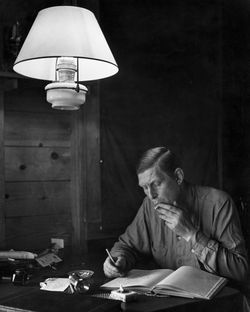Alexander McCall Smith in New Statesman:

When I started to write novels set in Edinburgh, the characters in these books – unsurprisingly, perhaps – began to show an interest in Auden. In particular, Isabel Dalhousie, the central character in my Sunday Philosophy Club series, thought about Auden rather a lot – and quoted him, too. A couple of years after the first of these novels was published, I received a letter from his literary executor, Edward Mendelson, who is a professor of English at Columbia University in New York. Unlike those writers who appoint coevals to look after their work, with the result that their executors either predecease them or do not last much longer, Auden made the wise move of appointing a young man to watch over his literary legacy. Mendelson was then a junior academic at Yale – and this gave him the opportunity to devote much of a long and distinguished career to producing commentary on Auden’s writing. It transpired that he was a reader of my Botswana novels and he wrote to me to tell me that, in his opinion, Auden and Mma Ramotswe would have agreed on practically every subject. However, what particularly pleased him, he said, was the attachment my other fictional characters had to the poet. The letter led to a friendship. I then wrote Professor Mendelson into an Isabel Dalhousie novel, creating a scene in which he comes to Edinburgh to deliver a public lecture on the sense of neurotic guilt in Auden’s verse. A year later, we translated fiction into reality by bringing Mendelson to Edinburgh to deliver before a real audience the lecture that he had previously given to a group of fictional characters. Such is the interest in Auden that almost 400 people came to hear him speak.
That is not bad for a poet who died 40 years ago this month. What explains the continuing appeal of his work? The language he used probably goes some way towards it. Auden had an ear for the rhythmic possibilities of English – at one time or another he used virtually every metre available to a poet writing in English. It is the syllabic verse, though, that he consistently used for so many of his later poems that has the strongest and most consistent appeal. It appears effortless – rather like the steady flow of a clever lecture – but it is really very skilfully constructed and has an extraordinary capacity to resonate with the reader. Yes, we think. This is exactly how it is. This is true.
